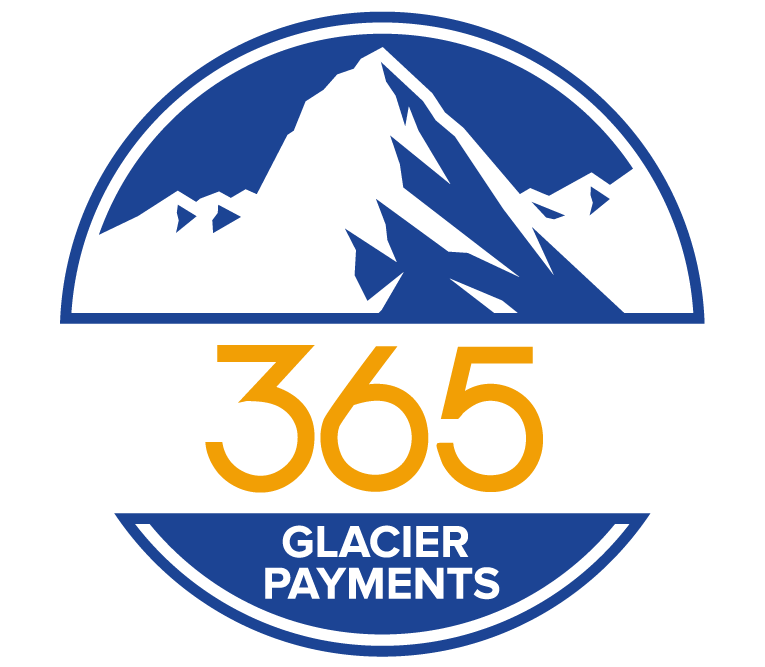Why your Business May be Conducting High Risk Credit Card Processing, and What You Can Do About It
Imagine this scenario. You have just incorporated a business that specializes in identity theft protection. Everything is off to a great start, and you feel wonderful in the fact that your business is helping people combat the dark web, as well as preventing fraud. The final step to make your business operational is to open a credit card processing account. You have decided to apply for an account with Square and have gone to the website to fill out an application. As you are perusing the Terms of Service, you come to discover that identity theft protection is on the list of prohibited goods and services. “How does this make sense?” you think. Your business is legal, and is HELPING people to prevent fraud, not contribute to it. You are not alone in being caught off guard with the inability to process credit cards with companies such as Square. Along with the large number of merchants that attempt to apply for a PayFac service such as Square, Pay Pal, or Stripe, you begin to realize that processing credit cards is going to be more of a challenging process than you anticipated. The inability to get an account approved may cloak itself in many strains of reasoning. You may hear statements such as, “You do too much volume” (you thought that this was a good thing) or “You haven’t done enough volume” or “We don’t work with your type of industry.” In this post we will delve into some of the risk factors that may land your organization on the high-risk credit card processing list.
Industry Type
Because the bank’s dollars are on the line every time a credit card transaction is processed, the bank decides the level of risk it wants to take with particular industry types. Often, you will see the industries below included on credit card processors’ prohibited merchant lists.
Most Common Industries That are Considered High-Risk Credit Card Processing
| 1-800-type chat sites |
| Airlines or airplane charters |
| All sexually-oriented or pornographic merchants: (i.e., companion or escort services, adult telephone conversations, adult bookstores, online adult membership or matchmaker services, adult paraphernalia or toys) |
| Annual contracts |
| Antiques |
| Attorney referral services |
| Auctions |
| Automotive brokers |
| Bankruptcy attorneys |
| Banned / illegal goods & services |
| Brokering |
| “Business opportunities” |
| Car parts |
| Casinos, gambling or gaming |
| Chain letters |
| Check cashing services |
| Cigarettes, e-cigarettes, CBD or Vape shops |
| Coins, collectible currency, or autographed collectibles |
| Collection agencies |
| Coupons or rewards-points programs |
| Credit protection, counseling, or debt repair services |
| Dating |
| Debt collection services |
| Direct response marketers |
| Drug paraphernalia |
| E-books (copyrighted material) |
| Electronics |
| Event tickets brokers |
| Extended warranty companies |
| Fantasy sports websites |
| Finance brokers, financial consulting, or loan modification services |
| Furniture sellers |
| Indirect financial consulting |
| Financial planning, strategy or advising |
| Game codes and hacks |
| “Get rich quick” books, programs, etc. |
| Health and wellness products |
| High average ticket sales |
| “How-To”-type websites (i.e., “Learn How to Make Money on The Internet”) |
| Horoscopes, astrology or psychic services, fortunetellers |
| “Hype” products or services |
| Hypnotists or self-hypnosis services |
| International shipping, cargo, or import/export |
| IPTV services |
| ISP and hosting services |
| Life coaching |
| Lingerie sales |
| Lotteries or sweepstakes |
| Magazine sales |
| Mail or telephone order sales |
| Medical care programs |
| Membership based companies |
| Money transfer |
| Merchants on the Terminated Merchant File (TMF) or MATCH List |
| Merchants with poor credit |
| Modeling or talent agencies |
| Multilevel marketing (MLM) |
| Music, movie, or software downloads or uploads |
| Nightclubs / cabaret bars |
| Nutraceutical |
| Offshore corporation establishment services |
| Online gaming |
| Pawn shops |
| Phone locking services |
| Prepaid calling cards |
| Prepaid debit cards |
| Real estate |
| Replica handbags, watches, wallets, sunglasses, etc. |
| Self-defense, pepper spray, mace, etc. |
| SEO services |
| Smartphones – sale, resale & spare parts |
| Social networking sites |
| Sports forecasting or odds-making/betting |
| Sub-acquiring / merchant aggregation |
| Subscription / continuity based billing |
| Technical support & web development |
| Timeshares or time-share advertising |
| Tour operators |
| Travel clubs, services, or agencies |
| Vacation planners |
| Vacation rentals |
| Vitamin and supplement sales (i.e., diet pills, prescription pills, health supplements, pharmacy products) |
| VoIP services |
| Weapons of any kind, including guns, knives, stun guns, or ammo. Also includes any parts of weapons (i.e., butts, triggers, magazines, etc.) |
Unfortunately, we hear from many merchants who have had their account shut down a month after approval, even though their industry is not included on a particular processor’s high-risk credit card processing list. This is due to underwriting that is done after, rather than before, the account is initially approved. Under Square’s Terms of Service it states “We can terminate or refuse your access to the service at any time, for any reason.” Square also states, “Square uses its own payments data information to determine if an incoming payment has a high or moderate risk of fraud.” The combination of these factors means that your account can be shut down at any time, even after it is approved. This happens all too often, as well illustrated by a NBC Chicago segment that covers a suburban medical business who was suddenly shut off by Square with no warning and caused them to be out more than $33,000. Let’s dig into why certain payment processors will not deal with business types such as the ones listed above.
Transaction Types
Card present as opposed to card-not-present may be a defining factor in determining risk. If you are utilizing a point-of-sale system (POS) and the cardholder is present, the risk of fraud is much less than if you are primarily conducting e-commerce or MOTO (mail order/telephone order) transactions. POS systems (where the cardholder is present) are commonly used in retail shops, restaurants, etc. As one can imagine, it is not common practice to show a form of ID when the buyer is not present. Additionally, a stolen credit card number can easily be used from anywhere in the world, without the purchaser actually having the physical card.
Transaction Values
On average, banks consider credit card transactions more than $500 to be high-risk credit card processing. High-risk can also be assigned if the average monthly sales volume is more than $20,000. When a company sells high ticket items, each potential chargeback makes up a higher percentage of monthly sales volume.
For instance, let’s say that we have Olivia Overspender who falls in love with a $20,000 couch that mirrors the one in the Kardashians’ living room. She places the order, and then realizes three months down the line, while they are still hand stitching the pillows, that it would take three months of paychecks for her to be able to afford the celebrity sofa. Olivia knows that the furniture shop has a no return policy for special ordered items, and panics because she has no money for groceries. Olivia then files a chargeback with her credit card company. The bank is now on the line if the merchant doesn’t have adequate cash in their bank account to cover the cost of the couch. The longer the time between the order and the delivery of the item also plays a significant role in whether a company is labeled as high-risk.

Currencies Accepted
This one is straightforward. If the country a business operates in is considered high-risk, it will place the merchant account in a high-risk credit card processing status. In general, European Union countries, the USA, Canada, Australia and Japan are considered to be in the green zone, while other countries are generally perceived to conduct higher percentages of fraud. The act of accepting multiple types of currencies may also label a company as high-risk, as the firm’s translation exposure is affected by exchange rate movement. Receivables and payables often are subject to fluctuations in the currency that is being handled.
Excessive Chargebacks
Chargebacks are a heavily weighed consideration in relation to the bank’s exposure. On average, businesses with a chargeback ratio of one percent or more are categorized as high-risk. As pinpointed earlier, when items are of a high ticket value, a chargeback can take more of a hit to the bottom line. Chargebacks are generally measured in monthly increments. If you are selling 1000 widgets per month, and 10 of those are charged back, you are now considered to be within a high-risk chargeback ratio.
Why do many banks consider affiliate marketing, infomercials, multilevel marketing, (MLM), direct mail, and upsells to be high-risk credit card processing? This is because of the higher likelihood of chargebacks. Subscription services also get hit with chargebacks quite often. Ever seen those infomercials that offer a free trial of your favorite product? How many times have you signed up for the trial, thinking “This is great! If I don’t like it, I can get my money back!” Two months pass, you get busy, and then realize that you forgot to cancel the subscription before the monthly charge kicked in. Rather than taking responsibility for the mistake, many people will issue a chargeback to their bank to get their money back, even though the company did nothing wrong.
Processing History
New businesses are often labeled as high-risk because they lack processing history. The banks are blind in this type of situation due to not having a history of chargeback ratios or financials. As with most banking transactions, a business owner’s credit history will also have an effect on whether the merchant is deemed high-risk. Even worse, if a merchant’s company is on the TMF or MATCH list, it is often a no-go for a merchant account. MATCH stands for (Member Alert to Control High Risk Merchants). It was previously known as the Terminated Merchant File (TMF). The MATCH List is a blacklist managed by MasterCard and is easily looked up by merchant processors. This is a huge red flag that indicate banks should stay away from these merchant accounts.
Reputational Harm
The bank’s personal comfort level of dealing with an industry type may be taken into consideration during risk assessment. Banks may not want to work to gain investor buy-in when their portfolio is made up of adult entertainment, or what is to be considered questionable content by certain circles.
The aforementioned industries that can be perceived to cause reputational harm may also carry high regulatory risks. When an industry is heavily regulated, there is usually a higher percentage of its members that are prone to breaching regulations and becoming subject to fines and closure. Many banks consider businesses that sell firearms, alcohol, tobacco and e-cigarette/vape products to fall into this category.
Bottom Line
If you are looking for a high-risk credit card processing account, 365 Glacier Payments is here to help. We have over two decades of experience in approving high-risk merchants. In addition, we provide personalized knowledge that enables our clients’ businesses to thrive. If you have additional questions or need help setting up a high-risk merchant account, please schedule an appointment here. If you prefer, you can reach us at 866.857.8766 or email info@365glacierpayments.com. We look forward to hearing from you!






